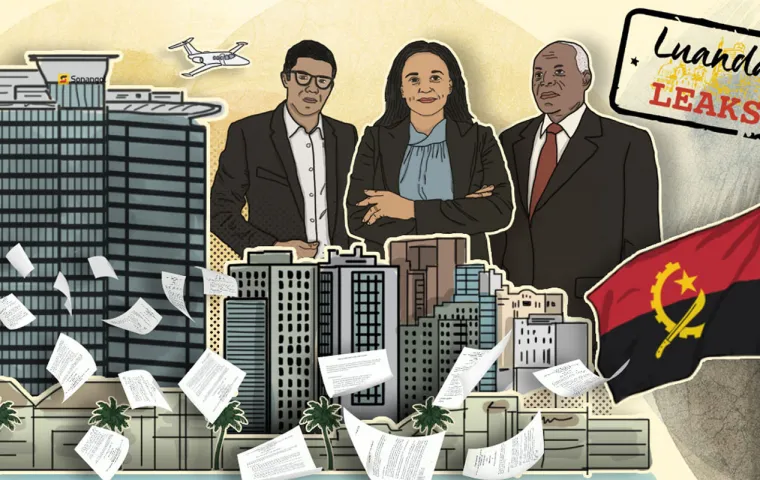
Fergus Shiel on how a young journalist can get into investigative journalism.
“Global stories like this are a huge training opportunity for journalists. Training is a huge part of ICIJ’s work.”
What were the major findings of your story?
“Luanda Leaks” exposes the inner workings of a global business empire fueled by hundreds of millions of dollars in public money siphoned from one of the poorest countries in the world.
What impact did your story have?
The dos Santos empire has had most of its assets frozen and faces several civil cases.
Was your story based on another publication’s work?
It was informed by a Forbes article but based entirely on original documents and work.
Did you receive any funding to do the story?
No.
How did the story start and how did your team decide on the first steps to take in working on this story?
We began with 715,000 documents, shared with us by the Platform to Protect Whistleblowers in Africa. ICIJ journalists combed through public corporate records in different parts of the world and extracted company names and other identifying information from the leaked records. We identified more than 400 companies and subsidiaries in 41 countries linked to the dos Santoses.
How long did it take to report, write and edit this story?
Nine months.
What challenges did your team face while working with sources?
Team members spent weeks in Angola and chased leads from Lisbon to the Brazilian Amazon. We interviewed hundreds of people and pored over hundreds of pages of additional records provided by sources, including invoices from Sonangol, the Angolan state oil company. All of our work and communication is done in confidential and encrypted forums.
What resources and tools did your team find useful? How did you organize your data and documents?
ICIJ journalists combed through public corporate records in different parts of the world and extracted company names and other identifying information from the leaked records — many in Portuguese. All told, we identified more than 400 companies and subsidiaries in 41 countries linked to dos Santos or her husband, including 94 in secrecy jurisdictions like Malta and Mauritius. We pulled the documents into a tool we built called Datashare that organizes files and makes them searchable.
What other challenges or barriers did your team face while working on the story or series, and how did you overcome these challenges?
ICIJ’s model is to assemble a cross-border team of journalists from different news organizations to take on stories of global concern. Our in-house reporting, editing and data teams anchor the effort. The concept is simple; the execution is not. We solved mysteries. Hours after dos Santos was fired from her job at Sonangol, the company made a $38 million payment to a contractor. The payment, we discovered, went to a bank account in Dubai controlled by a dos Santos friend.
What advice would you give journalists working on similar investigations?
Stories of corruption in far off places are often told as if despotic governments are singularly to blame. But it takes a global village to loot a country, our investigation found.
Western accountants, bankers, lawyers, and financial advisers helped dos Santos and her husband move hundreds of millions of dollars from Angola and into offshore accounts, where it was used to buy up fancy homes and stakes in legitimate businesses around the world. Our advice? Global is local, too.
Did your team face any pushback during or after the publication of this story? If so, how did you address this?
When the stories went live, the floodgates opened. Angola’s attorney general charged dos Santos with embezzlement and money laundering. A provincial court labeled a deal to acquire the jewelry company de Grisogono that was a focus of our reporting as “fraudulent.”
In Portugal, authorities froze dos Santos’ bank accounts and seized all of her assets. In the Netherlands, a criminal investigation was launched. Yet, we faced criticism that we had somehow targeted an African “success story.”
Did working on this story change your perspective as a journalist?
It reinforced my belief that it is vital for journalists to shine a light on dark deals.

